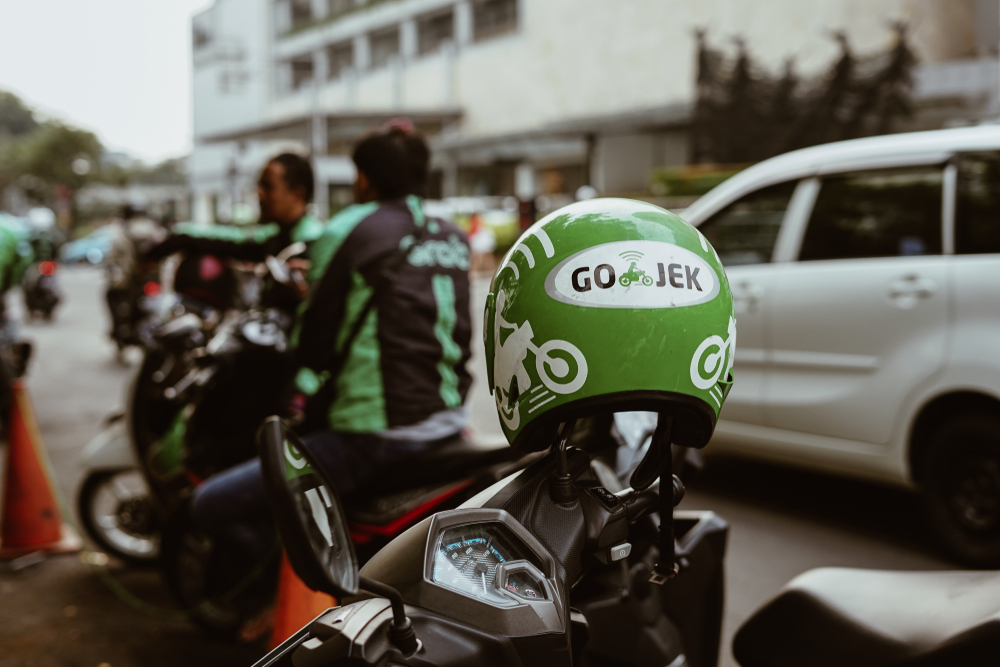Singapore-based unicorn Grab has requested that founder Anthony Tan be the de facto “CEO for life” of a potential merged entity with Gojek, its Indonesia-based rival, as both Southeast Asian “superapps” press ahead with talks to settle their differences and join hands, Nikkei Asia has learned.
Grab is also seeking several other clauses as conditions for the merger, including giving Tan sizable voting power in the company, veto rights over board decisions as well as having influence over his own compensation, according to two people privy to the matter.
A separate source with knowledge said that conditions such as “who gets to appoint, and under what conditions, the new [group] CEO in the event that [Tan] passes away” are also being discussed between the two companies.
The demands, if approved, would give Tan significant power over the merged entity and have raised concerns among some investors as they might scupper any potential public listing down the road due to governance concerns. Some investors are keen to swiftly launch an IPO of the merged entity after closing a deal.
Nikkei Asia also understands that Grab has recently moved to clarify to concerned investors that its proposal has been misinterpreted during negotiations and that the merged entity would be run in a way that complies with IPO regulations.
At the same time, Grab also has argued that companies that recently went public have supervoting shares giving founders more influence, according to two people with knowledge of the matter. Nikkei Asia understands that the Singapore-based company has explained that supervoting shares would be extended to Gojek co-CEO Andre Soelistyo as well.
SoftBank, Grab’s biggest backer, Grab and Gojek declined to comment.
A merger would likely see Grab take the lead in the integrated company because it is valued higher than Gojek and operates in more markets. A person with knowledge of the matter said that while negotiations are still at an early stage, a key disagreement is the shareholding structure of the combined entity. The person said Gojek has asked for 40% of the shares, an amount that Grab believes is “fundamentally too much” given it sees itself as being in a healthier financial condition, including in revenue, than its Indonesian rival.
Grab and Gojek have been in merger talks for nearly a year, with investors on both sides now aggressively pursuing a deal, having seen shares in Sea, the region’s biggest tech company, rise fivefold on the New York Stock Exchange since the beginning of the year. Some of them are eager to bring an end to an intense corporate rivalry that has burned through billions of dollars of capital, especially as both companies have been adversely impacted by the coronavirus pandemic as demand for their core ride hailing businesses takes a hit.
Grab’s requests mirror SoftBank’s strategy. Its Vision Fund has invested about USD 3 billion in Grab and parts of its ride-hailing portfolio, Uber Technologies and Didi Chuxing, are also Grab shareholders.
SoftBank and the Vision Fund sometimes take big stakes in companies but let the founders maintain control. And while raising large amounts of capital tends to dilute a founder’s ownership stake, SoftBank allows its invested companies to remain under founder control. That also shields the Japanese company from shouldering liabilities if the investment turns sour.
But giving unequal control to a founder came under intense scrutiny when US flexible office operator WeWork, a major SoftBank investment, tried to go public last year. WeWork initially said co-founder Adam Neumann would own shares with 20 times more voting rights than ordinary shares, and his wife Rebekah would play a key role in appointing a successor if he died. The IPO eventually collapsed and a sharp decline in WeWork’s valuation led to SoftBank’s biggest loss in history.
Neumann stepped down as CEO but has since sued the Japanese company for withdrawing an offer to buy up to USD 3 billion in WeWork stock from him and other shareholders.
SoftBank executives are in discussions with Tan over the clauses, according to one source. Details of the current shareholder agreement between Grab and the Vision Fund, which owns the stake in Grab, is unclear. Filings show that a SoftBank unit owned 22% of Grab Holdings but held no voting power in 2018. SoftBank later transferred its stake to the Vision Fund.
Investors behind Grab and Gojek are aligned in seeking a merger between the two, but the companies themselves remain apart and a final agreement is still months off. Both companies may still walk away from the deal, several people have said.
Even if both unicorns agree to merge, antitrust issues will certainly dog any deal. The crucial market is Indonesia, where the two remain dominant in both ride hailing and deliveries. A high-ranking government official previously toldNikkei Asia that “the government wants healthy competition between the two companies to continue, so that there is market balance” and that if a dominant company is formed, it “could harm consumers.”
This article first appeared on Nikkei Asia. It’s republished here as part of 36Kr’s ongoing partnership with Nikkei.
